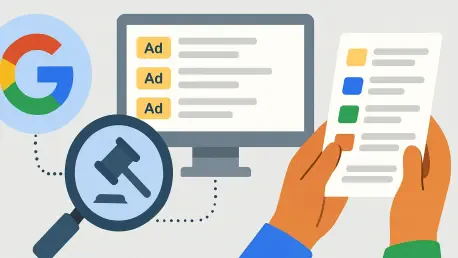In a dramatic turn of events shaking up the digital advertising world, the U.S. Department of Justice (DOJ) is pressing Google to open source its ad auction code as part of a sweeping set of remedies in an ongoing adtech antitrust battle. This push comes on the heels of Google’s loss in a significant case two years ago, with a remedies trial now just days away. The stakes are high as the DOJ aims to dismantle what it sees as a monopolistic grip on the digital ad market, a sector that influences billions in revenue and shapes the online experience for publishers and users alike. The idea of making such proprietary technology publicly accessible has sparked intense debate, raising questions about transparency, competition, and the future of the open web. As regulators and tech giants clash, the outcome of this legal showdown could redefine how digital advertising operates, potentially leveling the playing field for smaller players long overshadowed by Google’s dominance.
Unpacking the DOJ’s Aggressive Remedies Plan
The DOJ has laid out a robust strategy to curb Google’s alleged vertical monopoly in digital advertising, detailed in a comprehensive 60-page Proposed Final Judgment. Central to this plan is the mandated divestiture of key assets like AdX, Google’s ad exchange, and likely DFP, its publisher ad server. Until these divestitures are finalized, strict restrictions would prevent Google from self-preferencing, tying its services together, or engaging in discriminatory bid routing practices that have historically disadvantaged competitors. Additionally, a provision requires Google to deposit half of the net revenue from these platforms into a court-monitored escrow starting this year, funds intended to support publishers during the transition and back a neutral, industry-run open-source ad auction system. This bold move to open source the ad auction code stands out as a potential game-changer, promising unprecedented visibility for publishers and aiming to foster fair competition in a market critics argue has been opaque for far too long.
Industry Implications and Google’s Resistance
While the DOJ’s remedies have been hailed by digital media experts as a significant step toward empowering publishers and dismantling monopolistic practices, Google has mounted a firm defense against the sweeping changes. In a much shorter 25-page counterproposal, the company argues that the open web is already facing decline due to emerging technologies like AI chatbots and competing platforms, suggesting that broader structural remedies may be unnecessary or even harmful. Google advocates for narrower restrictions, such as merely banning the reinstatement of past illegal conduct, rather than embracing divestitures or open-sourcing critical technology. This tension between regulatory intervention and corporate pushback highlights a broader struggle over the future of digital advertising. Should Judge Brinkema adopt the DOJ’s vision, the industry might witness a historic shift toward transparency and fairness, setting a precedent for antitrust actions in tech. The decision’s aftermath could reshape standards, ensuring publishers gain better adtech options and a more competitive landscape emerges.









